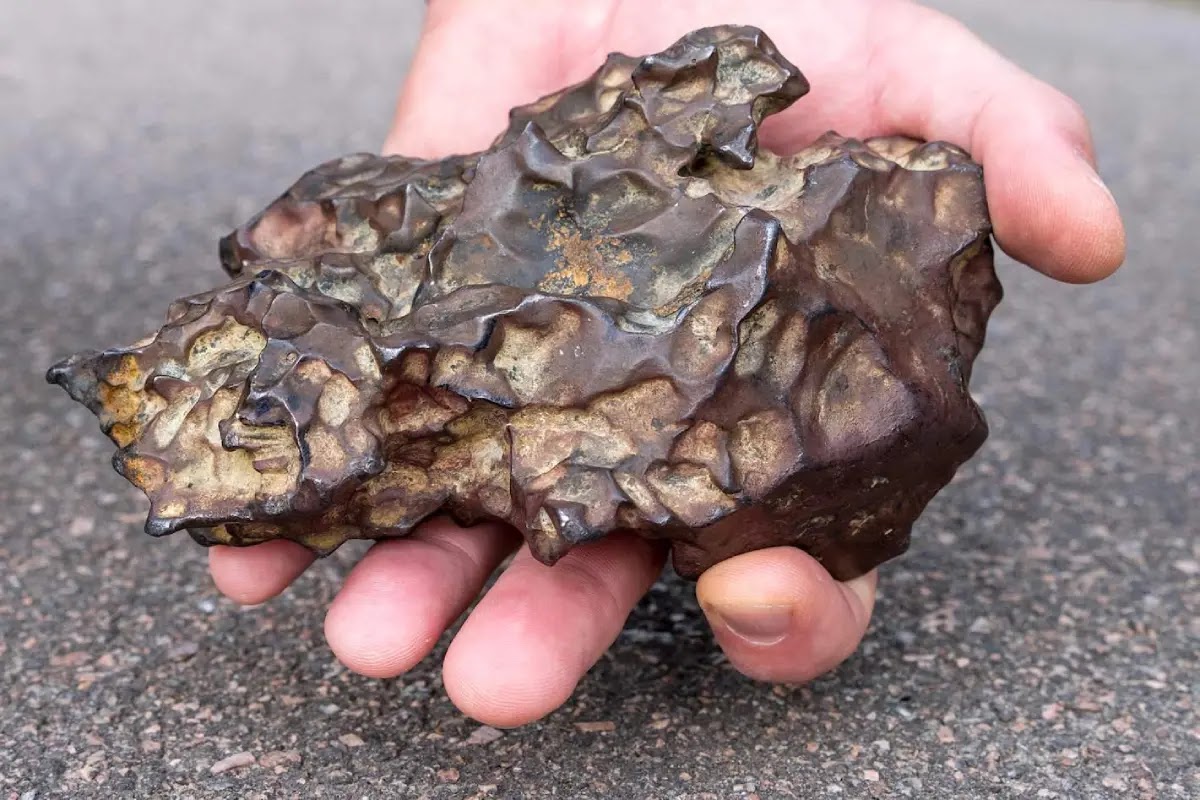Are Meteorites A Legacy?

According to Vietnamese laws and regulations. We provide information about strict regulations on meteorites as follows
Define
• Cultural Heritage Law 2001
Article 4.
2. Tangible cultural heritage is material products with historical, cultural, and scientific value, including historical-cultural relics, scenic spots, relics, antiques, and national treasures .
5. Relics are objects that have been handed down and have historical, cultural and scientific value.
6. Antiquities are objects that have been handed down, have typical historical, cultural, and scientific value, and are one hundred years old or more.
7. National treasures are artifacts that have been handed down, have special value, are rare, and represent the country in terms of history, culture, and science.
Own
• Cultural Heritage Law 2001
Article 6.
All cultural heritage underground on the mainland, islands, internal waters, territorial sea, exclusive economic zone and continental shelf of the Socialist Republic of Vietnam are state-owned.
Violations are strictly prohibited
• Cultural Heritage Law 2001
Article 13.
The following acts are strictly prohibited:
1. Appropriating and distorting historical-cultural relics and scenic spots;
2. Destroying or causing the risk of destroying cultural heritage;
3. Illegal digging of archaeological sites; Illegal construction and encroachment of land belonging to historical-cultural relics and scenic spots;
4. Illegally buying, selling, exchanging, and transporting relics, antiques, national treasures belonging to historical-cultural relics, scenic spots, and relics, antiques, national treasures of illegal origin legal; Illegally sending relics, antiquities, and national treasures abroad;
5. Taking advantage of the protection and promotion of cultural heritage values for profiteering, superstitious activities and other illegal acts.
Rights and obligations of individual organizations
• Cultural Heritage Law 2001
Article 14.
Organizations and individuals have the following rights and obligations:
1. Legal ownership of cultural heritage;
2. Visit and research cultural heritage;
3. Respect, protect and promote cultural heritage values;
4. Timely notify the location of discovery of relics, antiquities, national treasures, historical-cultural relics, and scenic spots; Hand over the relics, antiquities, and national treasures they find to the nearest competent state agency;
5. Prevent or request competent state agencies to prevent and promptly handle acts of vandalism, appropriation, and illegal use of cultural heritage.
Rights and obligations of individual organizations as owners of cultural heritage
• Cultural Heritage Law 2001
Article 15.
Organizations and individuals who are owners of cultural heritage have the following rights and obligations:
1. Implement the provisions in Article 14 of this Law.
2. Implement measures to protect and promote cultural heritage values; promptly notify competent state agencies in cases where cultural heritage is at risk of having its value falsified, destroyed, or lost.
3. Deposit collections of intangible cultural heritage, relics, antiquities, and national treasures to state museums or competent state agencies in case of insufficient conditions and ability to protect and develop them. promote value.
4. Create favorable conditions for organizations and individuals to visit, travel, and research cultural heritage.
5. Exercise other rights and obligations according to the provisions of law.
• Cultural Heritage Law 2001
Article 41.
1. All relics and antiquities obtained during archaeological exploration and excavation or discovered or handed over by organizations or individuals must be temporarily imported into the provincial museum where they were discovered. Provincial museums are responsible for receiving, managing and reporting to the Minister of Culture, Sports and Tourism.
2. Based on the value and preservation requirements of relics and antiquities specified in Clause 1 of this Article, the Minister of Culture, Sports and Tourism shall decide to hand over such relics and antiquities to a public museum with appropriate functions to protect and promote value.
3. Organizations and individuals that discover and hand over relics and antiquities will be reimbursed for discovery and preservation costs and be rewarded with a sum of money according to Government regulations.
Buy, sell, exchange, donate and inherit
• Cultural Heritage Law 2001
Article 42.
1. The State encourages organizations and individuals to register relics and antiquities under their ownership with competent state agencies in charge of culture, sports and tourism.
2. Relics and antiques must be appraised at an antique appraisal facility before registration. Antiquities appraisal establishments are responsible before the law for their appraisal results.
3. Organizations and individuals that own registered relics and antiquities have the following rights:
a) Be granted a certificate of registration of relics and antiques by a competent state agency in charge of culture, sports and tourism; to keep confidential information about registered relics and antiquities, if requested;
b) Receive professional guidance from competent state agencies in charge of culture, sports and tourism, creating conditions to protect and promote the value of relics and antiquities.
4. The Minister of Culture, Sports and Tourism shall specify procedures for registration of relics and antiquities; Conditions for establishment and operation of antique appraisal establishments
Refer to state agencies
• Is a meteorite a legacy?
The meteorite itself is a heritage, if the meteorite is over 100 years old it will be considered an antique, if the meteorite is less than 100 years old it will be considered a relic. However, first it is necessary to conduct an appraisal from the Geology department to determine whether it meets the criteria or is truly a meteorite or not
• Are there any restrictions on buying and selling meteorites?
There are no restrictions on buying and selling meteorites
• Is it necessary to register meteorites as heritage?
It is not required to register meteorites as heritage, however when buying or selling, it is recommended to register them so that meteorites are legal.
• How often are meteorites encountered and handled in practice?
Occasionally, the department still meets and handles meteorite registration cases
Identify:
+ In case a meteorite is a heritage (relic), the individual owner of the meteorite can still buy, sell, exchange, donate and inherit domestically and abroad according to the provisions of law.
+ In case the meteorite is a normal property, the owner exercises rights to the property according to the provisions of the civil code.

